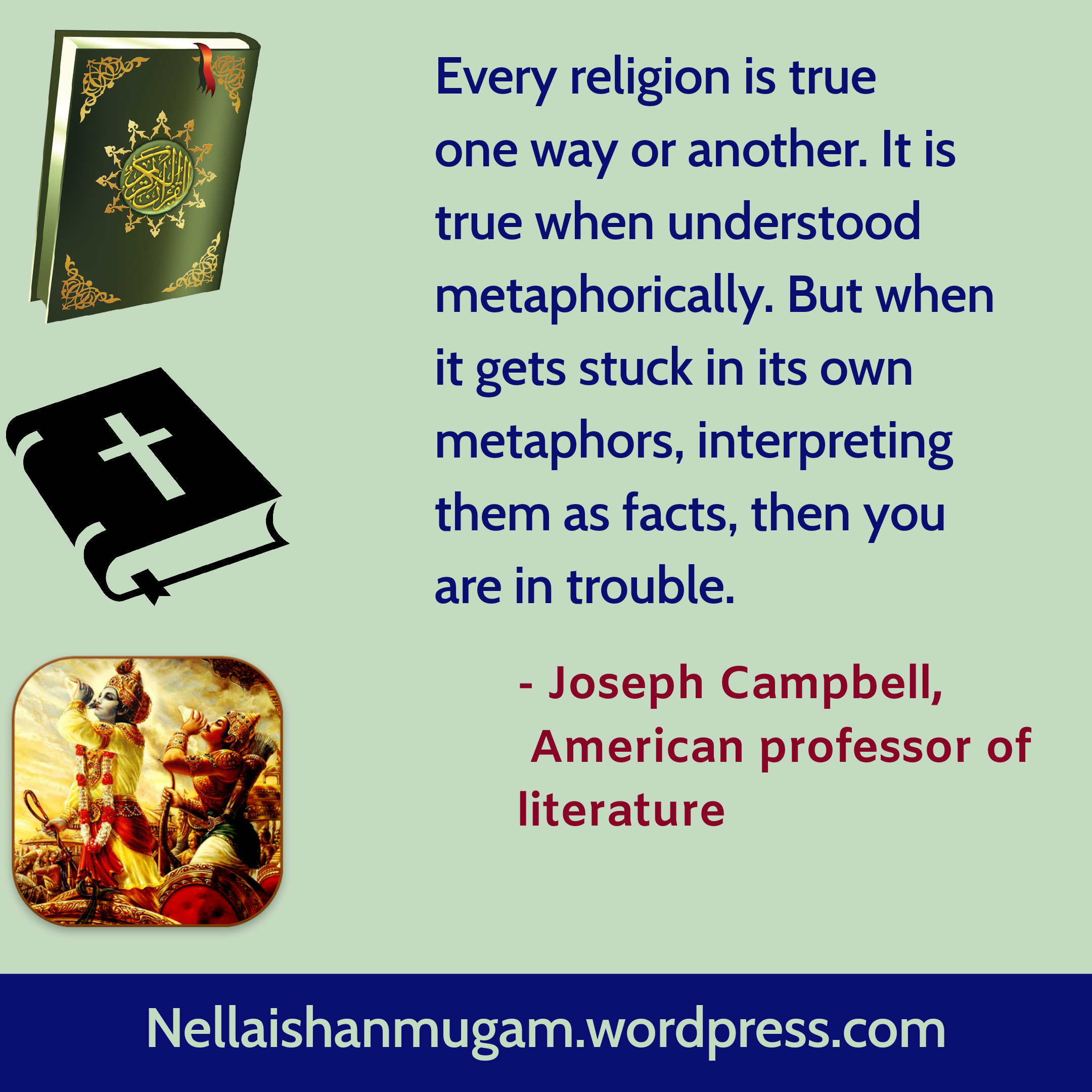
We tend to interpret the scriptures the wrong way when we take them literally. But scriptures are full of metaphors. It is said that God breathed his breath into man. The Holy Spirit comes from the Greek word ‘pneuma’ which means ‘breath’. Holy spirit is the same as Prana, Shakti and Kundalini in Hinduism. It is what animates the world and the human beings. But inside the human beings it is dormant. By spiritual practice involving unconditional devotion and meditation, we purify ourselves and let the holy spirit be revealed and fill our entire being. This is the meaning of getting baptized by the Spirit. The fall of Adam and Eve is a beautiful metaphor that indicates how the oneness of childhood is lost by the birth of duality. This happens to everyone. Exodus is the symbolism of the journey from bondage to liberation. Crucifixion is the death of the duality. And resurrection is the birth of Christ consciousness, the spiritual rebirth which brings the gifts of the Holy Spirit. It is called as Jnana in Hinduism.
This doesn’t mean that the stories in Bible didn’t happen. They just didn’t happen exactly the way it is explained. Also, there is a strong consensus among historians that Abraham, Isaac, Jacob, Moses and many others were not real people. Archeological research has rendered incredible evidence for the fact that many of the Bible stories are stories and not history. But it also presents the history of Israel in a way that adds juice to the story, even though it is completely different from the actual history. For example, the conquest of Canaan didn’t really happen; but to interpret it in a symbolic way, it symbolizes the conquest of one’s own ignorance, which is also the metaphorical interpretation of Holy Jihad in Islam. United Kingdom of Israel as portrayed in the Bible never existed either.
The Hebrew Bible was written for two purposes. Contrary to what Bible suggests, the entire Torah and the parts of Old testament was written sometime around 8th – 6th Century BCE. A major part was written after the destruction of the first temple in Jerusalem. The first purpose was political: to unite the people of Israel under one God, one temple and one Kingdom. The second purpose is spiritual: to convey truths via metaphors, parables and sayings.
The whole Bible comes under the category of mythology. In fact, only after the birth of Jesus, puranas, the Indian myths were composed. This also suggests that Indian mythology might have been inspired by Christian and Jewish scriptures. Indian myths also try to convey the spiritual truths using metaphors, parables, sayings and in the form of conversation between two people, a guru and a disciple. They do convey a little bit of history directly and indirectly, but many of the stories were added to create an interesting narrative. This narrative was used to unite people and also to kindle the feelings of devotion in the initial stage.
It is said that Quran was revealed to Muhammad by angel Gabriel. But here it is important to understand that even Gabriel is a personification of the Holy Spirit and the revelation by Gabriel is hence symbolic. There are a lot of such symbols in scriptures.
However, historians do agree that Jesus was a historical person. Two incidents which are considered as absolutely real are his baptism by John and his crucifixion.
John Campbell, an American professor of literature, has done a lot of research and has written books on this subject. I haven’t read any of his books yet and hence can’t comment about how efficient his arguments are. But I understood the symbolic nature of myths and scriptures in the light of my own experience.
Also read: Dear Christians, Hindu Deities are not Evil Spirits! – A Criticism of Christian Churches Which Promote Religious Intolerance

